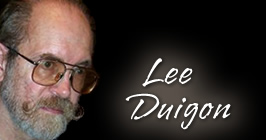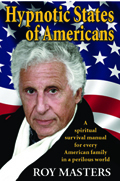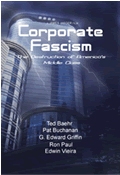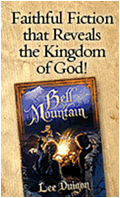By
Lee Duigon
November 24, 2011
NewsWithViews.com
A public school in Toronto has banned “hard balls”—baseballs, softballs, footballs, soccer balls, kickballs, and even tennis balls—because, says the principal, they’re “dangerous.” The kids are still allowed to play with sponge balls and, presumably, balls made of wadded-up hair, dust-bunnies, or overcooked spaghetti.
In recent years, according to various newspapers, public schools in the US, Canada, and Britain have banned almost every schoolyard game you’ve ever heard of, including tag, leapfrog, marbles, dodge-ball, touch football, soccer, British bulldog, and conkers.
Conkers? Never mind—you’re not allowed to play it anymore.
Basketball is also forbidden at some schools. And don’t even think about golf or bowling! Anyone who’s ever had a bowling ball bounced off his head can tell you why bowling should be banned.
The reason always given is that games and sports are dangerous. At the Toronto school, a bystanding adult got clouted by a soccer ball, inspiring the “hard ball” ban. Maybe, somewhere else, somebody put his eye out with a marble. Or accidentally leaped off a cliff while playing leapfrog.
The whole idea is to eliminate the risk of injury. This is a utopian idea, which is why it appeals so strongly to public educators. In reality—which is where educators usually part company with the rest of us—the element of risk comes into play as soon as you open your eyes in the morning. You could stumble, getting out of bed, and bash your head against the dresser. Maybe we ought to ban hard furniture. Surround ourselves with plush and mush.
Meanwhile, play being an essential part of every child’s development, we have to find some way for the kids at school to play without balls.
Some of the games might be revived by replacing balls with softer objects. Basketball with a loaf of bread instead of a basketball; soccer with a brown paper bag (empty, of course) instead of a soccer ball—you get the idea. But how do you save a game like tag, which doesn’t involve a ball? Plus there’s the stigma of being “it,” so potentially corrosive of a child’s self-esteem. It looks like tag is out for good. It’s what educators call a “chasing game,” and somebody could fall and get a boo-boo.
Obviously the public schools will have to come up with some new games—exercises in which the risk of injury approaches zero, and in which no negative emotions are aroused.
Here are a few suggestions.
Synchronized flab-waving. Let’s face it: if kids aren’t allowed to play, they’re going to get fat. And then they’ll feel bad about themselves. This new game, however, turns rolls of flab into an asset. A dozen kids standing (or sitting) in a row, rhythmically jiggling their bellies in time to music—John Lennon’s Imagine springs to mind—will not only provide some risk-free exercise. It will also foster that fine collective, group-think mentality so critical to failure later on in life.
Protest practice. Whether it’s marching around the schoolyard, arms swinging, lustily chanting “Hi-ho, hi-ho, capitalism’s gotta go,” or sitting in a circle and singing “We are the World,” or just taking a dump in the sandbox, our public school kids are all potential Occupy Wall Street protesters. They might as well start learning it as soon as they check into kindergarten. Besides, this activity requires no balls—just a sense of entitlement.
Group sniveling won’t burn many calories, but it seems a fine way to prepare the kids for college. Someday your little angel is going to have a degree in Poor Picked-on Victim Studies, $150,000 in student loan debt, and no job—in short, plenty to snivel about. And best of all, you, the parent, can join in!
We need hardly go on. Once the creative justices start flowing, many new games will occur to the tuned-in reader. Stationary tag, in which no one is it! A sliding board that lies flat on the ground! A see-saw without a fulcrum! Swings that don’t swing! The possibilities are endless.
| Subscribe to the NewsWithViews Daily News Alerts! |
The Duke of Wellington once said, famously, “The Battle of Waterloo was won on the playing fields of Eton.” He meant, of course, that games and sports taught values that would equip his officers to win the battle—team spirit and cooperation, sticking to the mission even if you’ve been hurt, self-sacrifice. You know: all those virtues that are almost as dead to the Western world today as the Duke of Wellington himself.
Will the next Waterloo be lost by men who never had balls?
� 2011 Lee Duigon - All Rights Reserved
Lee Duigon, a contributing editor with the Chalcedon Foundation, is a former newspaper reporter and editor, small businessman, teacher, and horror novelist. He has been married to his wife, Patricia, for 34 years. See his new fantasy/adventure novels, Bell Mountain and The Cellar Beneath the Cellar, available on www.amazon.com
Website: LeeDuigon.com
E-Mail: leeduigon@verizon.net










 Share
This Article
Share
This Article





